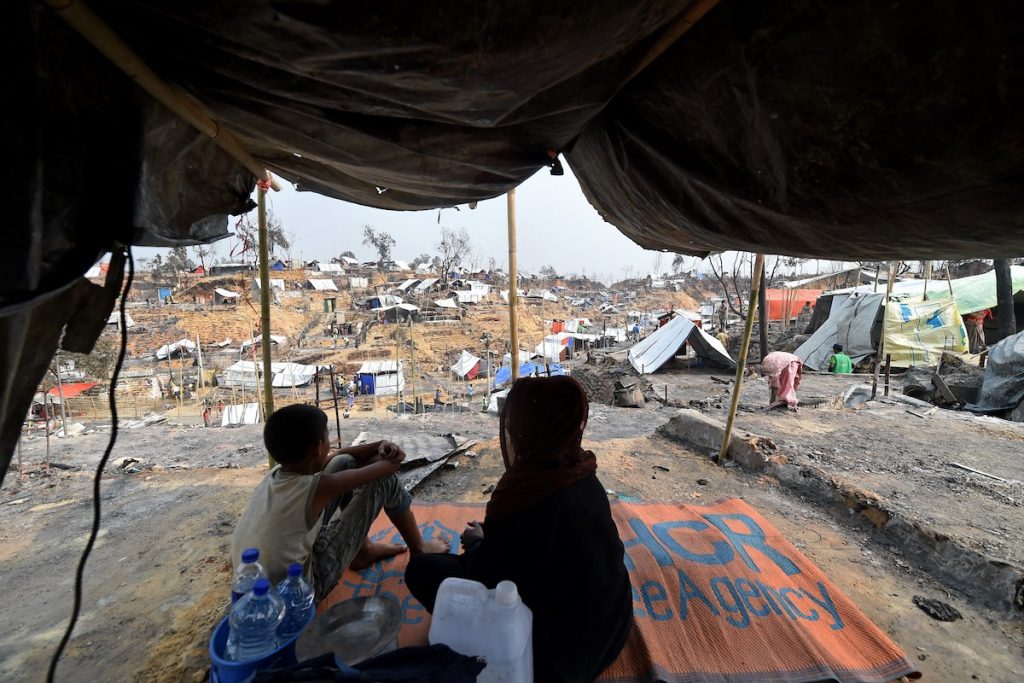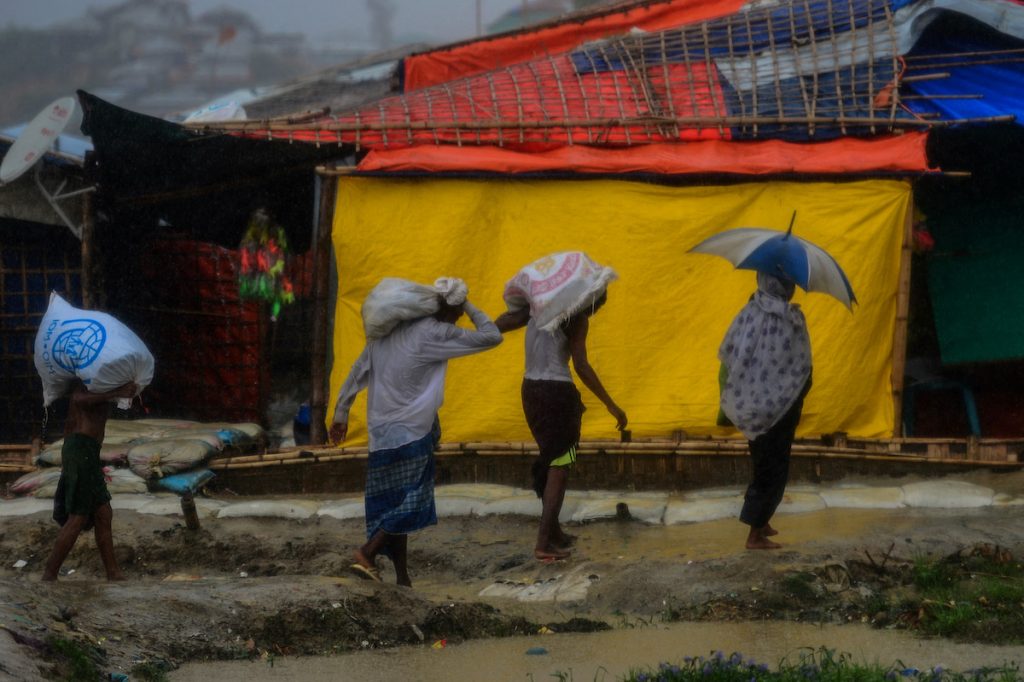
The social action arm of the Catholic Church in Bangladesh has raised alarm over the safety of Rohingya refugees in the country as the monsoon season approaches.
The season will play havoc with the fragile existence of around 1.1 million Rohingya in refugee camps, Caritas Bangladesh said in a statement.
More needs to especially be done to help those refugees affected by a huge fire in one of the camps last month that killed 15 people and destroying shelters and property, affecting about 92,000 people.
An estimated 10,000 structures including latrines, health facilities, community facilities, and mosques were damaged by the fire, creating an urgent need for food, emergency shelter, water and sanitation.
“It’s a race against time to help people build shelters strong enough to withstand the howling winds and driving rains that will arrive within the next few days,” said Inmanuel Chayan Biswas of Caritas Bangladesh.
Biswas said the biggest impact of the March 22 fire is on the mental state of women and children. “Their safety has been compromised as they’ve been living in makeshift homes since the fire,” said Biswas.
One of the refugees Minuara Begum said she and her family lost everting in the fire, including their shelter.
“We don’t feel safe at all inside the camp, especially at night,” she said.
Bishop Gervas Rozario, president of Caritas Bangladesh, said the organization is “trying its best to help the Rohingya refugees as much as it can.”
He said many Rohingya shelters were also “burnt down for reasons unknown,” adding that “people are living in the open without shade.”
“Our efforts will continue to help them as long as they need and we can,” said the prelate.

Caritas, along with the International Organization for Migration, has been helping rebuild makeshift shelters immediately after the fire.
Biswas said: “We have so far helped almost 650 families build shelters with the necessary technical support and have provided the necessary materials to ensure immediate access to water and sanitation.”
He appealed to the international community for help, saying that “Bangladesh, as a developing country, can’t do this alone.”
Most of the refugees fled Myanmar after Aug. 25, 2017, when that country’s security forces launched a devastating attack on Rohingya communities in Rakhine State.
The attacks took place against a background of decades-long discrimination, persecution, and violence against the Rohingya.
The Myanmar government said, prior to the Feb. 1 coup, that it would repatriate Rohingya refugees in Bangladesh but a nine-year confinement of 130,000 Rohingya in central Rakhine State undermines such claims, rights group say.
Source: Licas Philippines
0 Comments